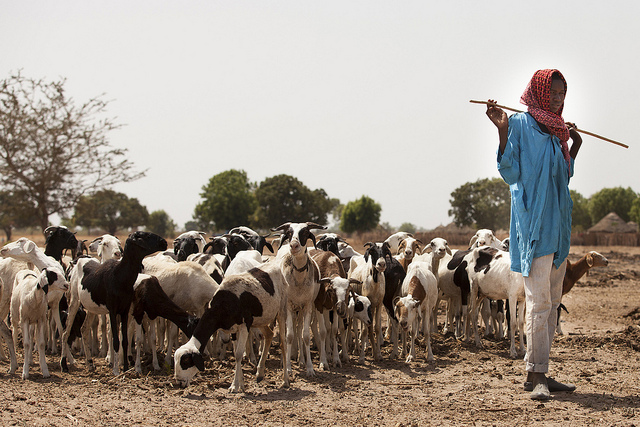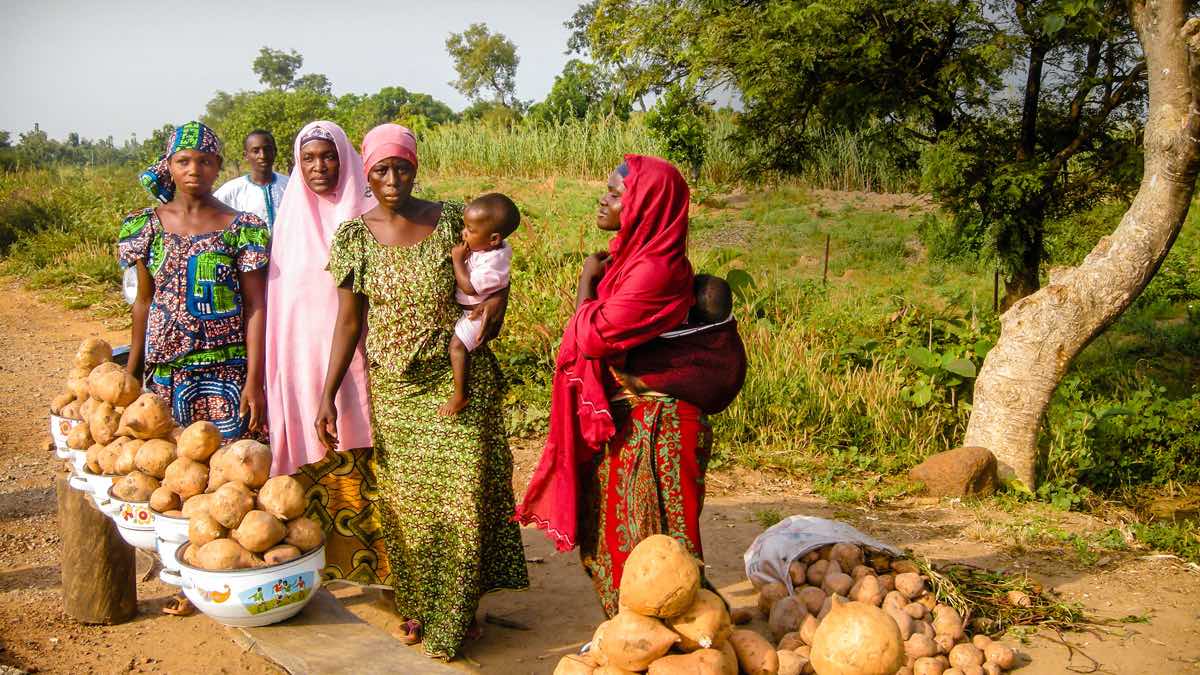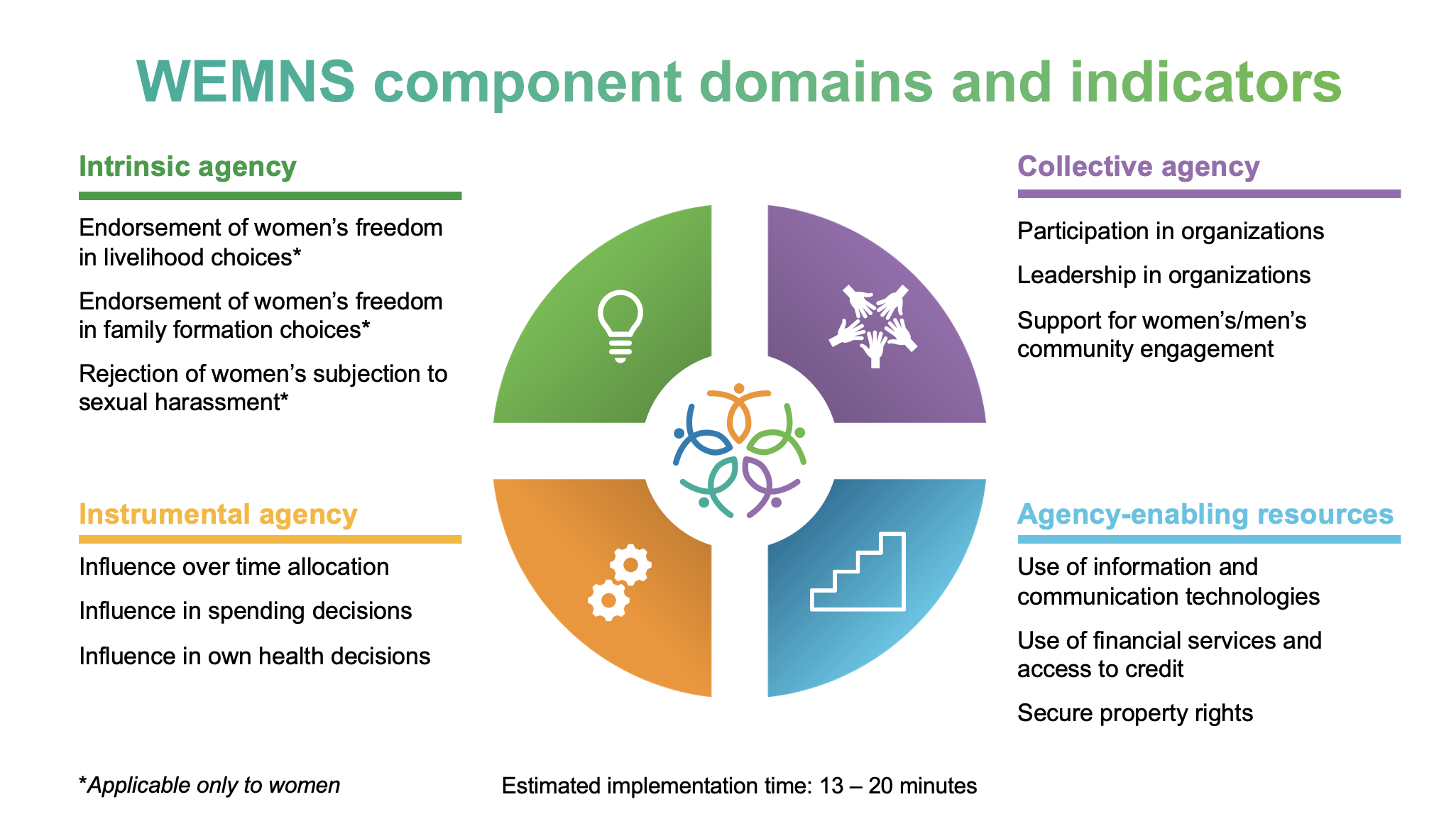In the drought-prone regions of East Africa and parts of South Asia, a lack of water can be the most damaging factor to a farmer’s bottom line. Agriculture is a particularly high-risk occupation in these regions, and climate shocks such as drought can make the job even more risky, engendering cycles of poverty. Moreover, the high risks associated with farming often discourage investment, which in turn reduces agricultural output and farmers’ income. And risk may worsen with climate change, if the change leads to more frequent droughts.
In his discussion paper, Drought Risk Reduction in Agriculture: A Review of Adaptive Strategies in East Africa and the Indo-Gangetic Plain of South Asia, IFPRI senior research analyst Nicola Cenacchi explores points of vulnerability and means of building resilience in the agricultural sectors of East Africa and South Asia’s western Indo-Gangetic Plain, as well as the relationship between drought and food insecurity in these areas. Examining case studies from Ethiopia, Kenya, and India, Cenacchi sought solutions for reducing farmers’ exposure to risk and increasing resiliency in the face of drought.
What seems certain is that extreme weather-related shocks are here to stay. The prevalence of drought is growing in many parts of the world, according to the Emergency Events Database (EM-DAT), which notes that drought in Eastern Africa has been steadily increasing over the last 50 years, and that in 2011, the Horn of Africa had experienced its worst drought in 60 years.
In August 2011, then-Secretary of State Hillary Clinton visited IFPRI’s headquarters and addressed the food security crisis in the Horn of Africa. Clinton made the case for strengthening agricultural systems as a means of ensuring food security and building resiliency to such shocks. Cenacchi makes a similar pitch based on his latest research findings, calling for a shift in investment priorities from food aid and post-disaster relief to technical assistance and loans as a means to boosting resiliency.
For instance, Cenacchi suggests adopting schemes that ensure better access to index-based weather insurance. Such programs, particularly when structured to meet the needs of smallholder farmers and those who lack access to credit, have achieved some success in drought-prone countries such as Ethiopia.
According to Cenacchi, successful insurance products must overcome three types of barriers: those that impede supply, those that impede demand, and those that fall into a third, less quantifiable category, such as barriers created by a lack of trust between policy issuers and policyholders.
Marrying tradition with innovation in designing these programs can prove to be a winning formula. An article in a recent issue of IFPRI’s Insights Magazine highlighted one such example from Ethiopia. Weather insurance was offered through traditional community funerary groups called iddirs, which increased policy adoption rates among target populations. This helped spread risk while also keeping costs low enough to ensure coverage for many. According to Cenacchi, complimentary programs, such as those that combine safety nets and insurance, are also an effective model for reducing risk and vulnerability to drought.
While agricultural risk will always exist in drought prone regions, investment in sustainable farming systems can help farmers hedge their bets. By providing farmers with the necessary tools and knowledge to prosper, policymakers can help lessen the impact of weather shocks on food and nutrition security.
Related materials







